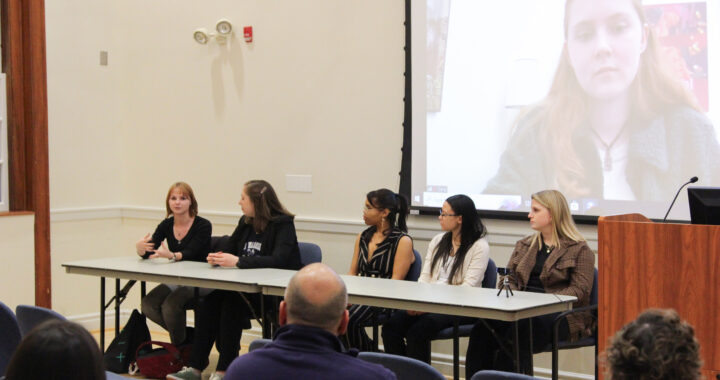Prof. Begins Fellowship
3 min readPHIL WHITE
Out of a pool of 50 applicants, only eight were selected to receive the prestigious Jennings Randolph Fellowship from the United States Institute of Peace this year.
UMW history professor Nabil al-Tikriti was one of them.
The D.C.-based fellowship has allowed him to take time off from his teaching this semester to study ethnic conflict and population displacement in Iraq.
“I had known about the fellowship for many years and it’s a great opportunity to engage in policy debates in Washington about Iraq,” al-Tikriti said.
The United States Institute of Peace is “an independent, nonpartisan, national institution established and funded by Congress,” according to its website. Its purpose is to promote the prevention and resolution of violent conflict around the world.
In his fellowship application, al-Tikriti said that his research goal is to trace the history of ethnic conflict and population displacement in twentieth-century Iraq, and to “attempt to construct a model of the common dynamics of these phenomena.“
Al-Tikriti contends that ethnic conflict and population displacement tend to cause more ethnic conflict and population displacement. He also notes that since 2003, the massive population displacement in Iraq has affected the number of professionals able to remain in that war-torn country.
“The loss of such doctors, professors, scientists, and other professional actors will limit the potentiality of societal development until the trend is reversed,” he said.
Al-Tikriti says that he will be traveling to Washington two to three days a week for the duration of the fellowship. So far, he has mostly been involved in introductory work. “It’s a bit like a professional counterpart to freshmen orientation,” said al-Tikriti.
He will be taking two trips to Iraq, where he will interview government officials and refugees to further his research.
At the conclusion of his fellowship, al-Tikriti will write two reports about to his research; one will concentrate on population losses occurring specifically in Iraq after 2003, while the other will address the historical background and general nature of population displacement in Iraq and surrounding countries. He says both reports will address displaced populations currently living in Iraq, and refugees outside of Iraq.
“They’re refugees because of a war we started,” says al-Tikriti, who called the U.S.-led war in the region “a disaster,” and noted that more than 2.5 million Iraqis have been displaced as a result of the war.
“I would hope that U.S. policy vis-a-vis Iraq might change,” he said. “One specific policy is the amount of asylum seekers that are admitted to Iraq each year. In four years, 1,300 people [out of 2.5 million] have reached safety. That’s a policy I’d like to see change.”
al-Tikriti began his academic career as an Ottoman historian, but says that since 2003, “most of my work has been directed towards today’s Iraq.”
“I wanted to be involved in the debates about policy, because a policy made in Washington has effects on people halfway around the world, which I have seen,” he said. “I wanted to engage in the creation of policy from here on out.”
Al-Tikriti will resume his instruction of classes next fall.











